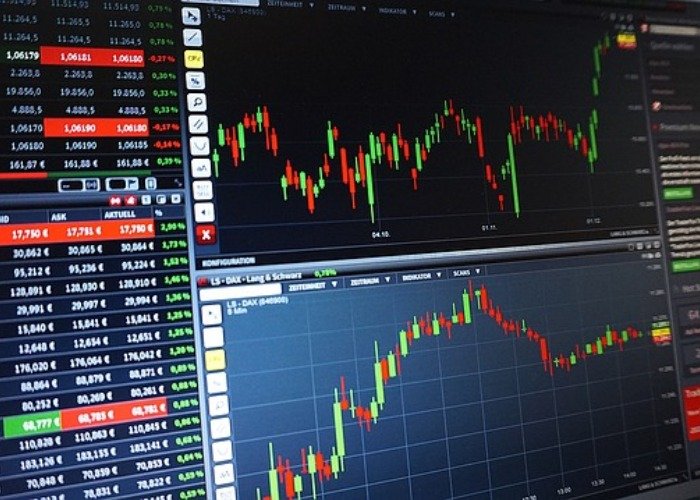
Recent events in world’s economy and politics have prompted many people to start hedging their bets against the equity indexes, bonds, dividends and currencies and could possibly signal a shift towards the crypto markets.
Most notably, investors fear that the latest trade war between USA and China will have long lasting negative effects on economies across the world. The latest push from the Donald Trump’s administration to encourage domestic economy growth and a fairer outside trade by implementing tariffs on $675 billion worth of Chinese goods will probably not remain unanswered by the Chinese. A response is expected soon enough and market makers are preparing for that.
Trade isn’t the only economic issue currently straining the world markets. EU is struggling to produce economic growth, oil is surging over $80 a barrel and national currencies are performing worse than ever. Argentinian peso, for example, now holds the infamous status as the world’s worst-performing emerging markets currency, after shedding about 56 per cent of its value this year.
Politics and demographics are playing a major role in the economic turmoil. Germany is in an uproar over the massive number of illegal immigrants that were let in the country by the Merkel administration; Italy, Hungary, Poland and several other countries are electing centrist/right wing parties that are looking to shift their focus away from the European Union.
All of these reasons have brought about a new wave of hedging trading.
“Only now have trade war concerns grabbed the spotlight for investors after bubbling away in the background for most of this year, prompting the rush for such hedging trades,” said Gerard Fitzpatrick, London-based chief investment officer for Europe Middle East and Africa at Russell Investments, which has nearly $300 billion of assets under management.
And while hedging a bet against an asset can bring you value, you can also end up being wrong and losing your money. Put trading (being able to sell at a preset price if the index falls below a certain level in exchange for paying a premium) and shorting (investors borrow securities and sell them, betting to buy them back and return to the lender later in the future when the asset price drops further) are looking to be the most popular options on the market. All in all, these types of trades indicate a bearish sentiment across the market and signal that a downturn is probably happening.
What does this mean for the crypto markets?
Some might assume that, with the faltering of traditional markets, we might see more money flowing into the crypto markets. This isn’t necessarily the case as traditional investors still prefer stocks over crypto, mostly due to a human-ingrained rigidity and the unsafe reputation that crypto markets bear. At the same time it is important to note that crypto markets themselves aren’t faring that well, as we can deduce from the continual 6-month downtrend that we have been experiencing. Looking at the sheer amount of shorts currently placed on major cryptocurrencies should confirm this sentiment.
Read here about best BCH wallets.
For now, crypto markets are moving along the general economy trend, even though they are somewhat more independent from it than the traditional finance industry. There are signs that a shift is beginning to happen as leaders of Fortune 500 companies are shifting to crypto-related positions en-masse. Brad Garlinghouse, a former employee at AOL and Yahoo, Marc O’Brien, the former CEO of Visa UK, Chris Matta, Ali Hassan and Michael Kazlev, former Goldman Sachs high-level officials, are just some of the bunch that has been making the switch as of late. Even Facebook, one of the biggest “traditional” businesses in the world recently performed a massive managerial re-shuffle and created a full blockchain oriented section of the company led by David Marcus, a former leader of their Messenger division and a current board member at Coinbase.
The big flippening of financial resources into the world of crypto will not be happening anytime soon, but there are reasons to be positive about the future. Once blockchain-based platforms start putting out products that can achieve commercial-grade adoption, we should start seeing investors become interested in crypto-related methods of offsetting their losses.






